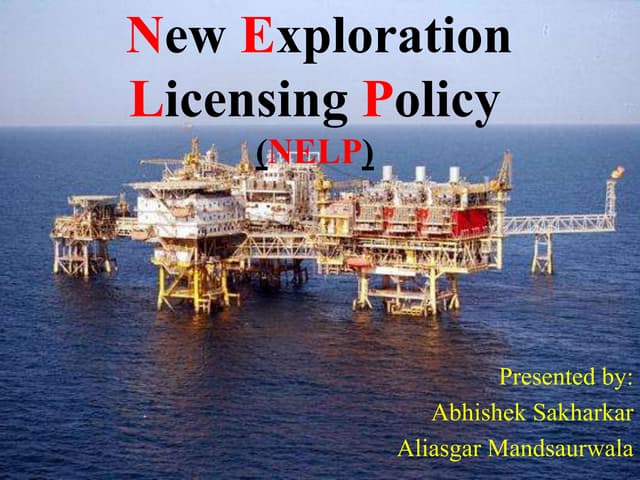New Exploration Licensing Policy
India’s oil and gas sector has seen a remarkable surge in investment, attracting over $36 billion. This growth has resulted in 177 hydrocarbon discoveries, as reported by the Petroleum Ministry. The catalyst for this investment boom was the New Exploration Licensing Policy (NELP), which allowed bidders to recover costs before sharing profits. This approach reshaped India’s upstream energy sector until it was replaced in 2016.
New Exploration Licensing Policy (NELP)
NELP was introduced in 1999 to encourage exploration in India. It enabled companies to recover their exploration costs before profit-sharing with the government. Between 1999 and 2010, NELP facilitated nine bidding rounds, awarding 254 blocks. This attracted $17.6 billion in exploration investments, leading to 67 oil and 110 gas discoveries. Major finds included the KG-D6 block, crucial for India’s natural gas output.
Shift to Revenue Sharing Contracts (RSC)
In 2016, the NELP model was replaced by the Revenue Sharing Contract (RSC) system. Under RSC, companies bid by offering the highest share of production to the government. This model aimed to simplify operations and reduce disputes over cost recovery. The government sought to enhance transparency and attract more foreign investment through this streamlined approach.
Open Acreage Licensing Policy (OALP)
The Open Acreage Licensing Policy (OALP) was introduced in 2018. It allowed companies to select blocks for exploration, leading to eight bidding rounds by 2022. However, the results were underwhelming compared to NELP, with only 6 oil and 4 gas discoveries from 144 awarded blocks. Total exploration investment during this period was only $1.37 billion.
Challenges Faced by NELP
Despite its successes, NELP faced challenges. Delays in obtaining environmental and regulatory clearances often hampered projects. Disputes over cost recovery led to conflicts between companies and the government. These issues brought into light the need for a more efficient regulatory framework.
Hydrocarbon Exploration and Licensing Policy (HELP)
To address the challenges under NELP, the Hydrocarbon Exploration and Licensing Policy (HELP) was introduced in 2016. HELP replaced the complex Production Sharing Contract (PSC) model with the RSC framework. It aimed to reduce operational complexities and enhance the ease of doing business in the sector. The government sought to create a more investor-friendly environment.
Discovered Small Field (DSF) Policy
In addition to HELP, the government introduced the Discovered Small Field (DSF) policy in 2015. This policy aimed to monetise small and marginal fields discovered by national oil companies. Since its introduction, 85 contract areas have been awarded, attracting $69 million in exploration investment.
Month: Current Affairs - April, 2025
Category: Economy & Banking Current Affairs







